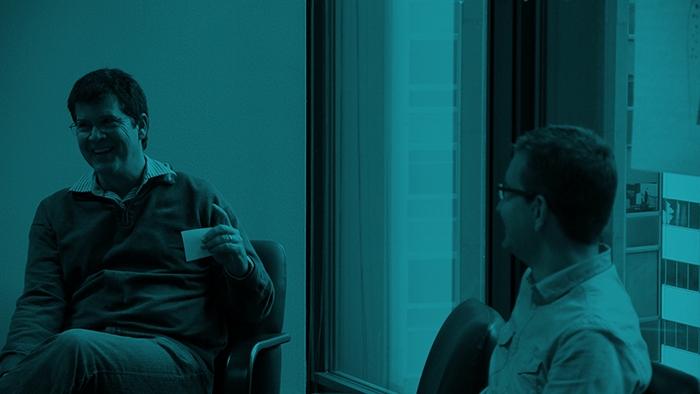
The Most Difficult IT Interview I've Ever Loved
After more than 30 years as a developer, architect, and consultant, including nine years running my own consulting and custom software development company, it was time for a change. So I started looking for an employer that was a good fit for my skills, ambitions, and personality - or at least two out of three!
I interviewed with several companies during this process, including The Borg, Tiny Niche Company with Endless Maintenance, Really Boring Consulting Firm, Generic Development Shop, Start-Up that Never Ships Anything, Offshore Front Company, and several others without amusing caricatures.
Only one stood out: Thoughtworks.
Why Thoughtworks is Different
Thoughtworks is different. I had no idea how different until I was well into the interview process. The deeper I went, the more I liked the process, and the more I liked the company. What makes Thoughtworks different is their emphasis on people - well beyond the typical “people first” statements made by average agile companies and every other consulting firm on the planet. They mean it. They live it. And they prove it in their interview process.
Why the Thoughtworks Interview Process is Considered "Hard"
Thoughtworks’ interview process has been characterized as the first or second most difficult IT interview process in the US, depending on which survey or article you read. For example:
It’s All About Perceptions
The Internet meme that Thoughtworks’ process is hard is somewhat misleading. Perhaps it only seems hard because most other companies’ processes are one-sided, impersonal, and somewhat superficial. A few are downright infuriating!
For me, the Thoughtworks process is not “hard” on purpose, it only seems hard by comparison. What it is however, is mutual and thorough:
- Phone interviews probe tech knowledge plus reasoning processes
- The coding test was substantial; non-trivial problems to choose from and complete in your own style
- a consulting discussion, to see how you think
- a timed intelligence test, to see how you rank
- a timed language-independent programming test, to see if you grasp certain fundamentals
- an in-depth discussion of ethics, to see if you’re transparent, open-minded, and kind
- two technical/architecture/design/consulting discussions, to see how your imagination stretches and rebounds
- a pair-programming session, to see how you work and play with others
The on-site interview lasted about seven hours, and was always conducted with a pair of interviewers. Frankly, I enjoyed it - but then again I like taking tests and having interesting conversations with really smart people! I didn’t want to leave, but had to catch a shuttle to the airport for my return flight.
Why I Loved It
All of the other interview processes I went through were looking for a very specific technical skill fit - a square peg to drop into their predefined employment round hole. Some of them didn’t seem to know what they wanted. What made Thoughtworks’ process stand out was that they were really trying to get to know me, to figure out who I really am, and what I am capable of, not just going through the motions and checking boxes on a list. They also wanted me to get to know them, to understand who they really are, what they’re about, and why they do things the way they do.
It’s not the Length of the Interview, it’s the Quality of the Encounter
Long interview processes are not unique to Thoughtworks. For example, The Borg has an on-site interview process that is just as long, but far less engaging - and since each discussion was one-on-one, far too susceptible to being sabotaged by one bad interviewer. By the end of the day I felt completely drained, and far less impressed with the company than when I started.
By the end of the Thoughtworks on-site interview process, however, I felt tired but enthused about the unique experience I had just had. Reflecting on the interesting people I had just met and intriguing discussions we had, I got so excited about the company and the possibilities for growth, learning, and making a difference both technically and personally that I was unable to sleep on the red-eye flight home.
Interviewing is Not About the Job, it’s About the People
The people that I met during the interview process contributed greatly to my growing enthusiasm - everyone was smart, polite, interesting, and sincere. They made me feel welcome and wanted - a sharp contrast to The Borg et al - and much more effective than the other interviews I went through.
Thoughtworks followed up with one more interview after I returned home, a video interview with two senior executives, to be certain that I was really the person they thought I was, and to make sure that I was still enthused about the opportunity.
I am, I was, and I accepted an offer a few days later.
Now That I’m a Thoughtworker
I’ve only been with the company a few months, and so far it is everything that I thought it would be - but with even more interesting, helpful people than expected.
Yes, the process is difficult - but it’s worth it. I made it out alive, can you?

Disclaimer: The statements and opinions expressed in this article are those of the author(s) and do not necessarily reflect the positions of Thoughtworks.














